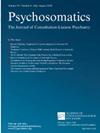Adaptation and Validation of a Short Acculturation Scale in a Multi-Ethnic Asian Population
IF 3.4
Q2 Medicine
引用次数: 2
Abstract
The Short Acculturation Scale (SAS) has been widely used for assessing the level of the acculturation of migrants in Western countries. However, the validity of SAS for use in cosmopolitan settings without a single prevailing culture is unclear. We examined the validity and reliability of a version of the SAS adapted to a multi-ethnic Asian society. We used cross-sectional data from 12,610 Singaporean citizens and permanent residents, aged 21–75 years, of Chinese, Malay, and Indian ethnicity. Our version used 11 items, with 5 questions on language use, 3 on media use, and 3 on ethnic social relations, to measure acculturation. Our version of the SAS had good internal consistency. The three-factor CFA model had a good fit to our data. The results from the multiple group CFA supported metric invariance and partial scalar invariance across the three ethnic groups. The total score was positively correlated with generation in Singapore and the number of languages spoken. Among first generation immigrants, country of origin, but not the duration of residence was significantly associated with the acculturation score. Our three-factor version of the SAS is a reliable and valid tool for measuring acculturation in Singapore residents. These findings indicate that adapted SAS can be used to assess acculturation in multicultural settings.短文化适应量表在亚洲多民族人群中的适应和验证
短期文化适应量表(SAS)已被广泛用于评估西方国家移民的文化适应水平。然而,SAS在没有单一主流文化的国际化环境中使用的有效性尚不清楚。我们检验了适用于多民族亚洲社会的SAS版本的有效性和可靠性。我们使用了12610名年龄在21-75岁之间的新加坡公民和永久居民的横断面数据,他们分别是华裔、马来人和印度人。我们的版本使用了11个项目,包括5个关于语言使用的问题、3个关于媒体使用的问题和3个关于种族社会关系的问题,来衡量文化适应。我们的SAS版本具有良好的内部一致性。三因素CFA模型与我们的数据非常吻合。多组CFA的结果支持三个种族群体的度量不变性和部分标量不变性。总分与新加坡的世代和所说语言的数量呈正相关。在第一代移民中,原籍国(而非居住时间)与文化适应得分显著相关。我们的三因素版SAS是衡量新加坡居民文化适应度的可靠有效工具。这些发现表明,适应的SAS可用于评估多元文化环境中的文化适应。
本文章由计算机程序翻译,如有差异,请以英文原文为准。
求助全文
约1分钟内获得全文
求助全文
来源期刊

Psychosomatics
医学-精神病学
CiteScore
3.20
自引率
0.00%
发文量
0
审稿时长
6-12 weeks
期刊介绍:
The mission of Psychosomatics is to be the leading psychiatry journal focused on the care of patients with comorbid medical and psychiatric illnesses. The scope of Psychosomatics includes original research, review articles and clinical reports that address psychiatric aspects of medical illnesses and their management. Areas of particular interest include: the effect of co-morbid psychiatric conditions on the management of medical illness; the psychiatric management of patients with comorbid medical illness; educational content for physicians and others specializing in consultation-liaison (C-L) psychiatry; and, the provision of psychiatric services to medical populations, including integrated care.
 求助内容:
求助内容: 应助结果提醒方式:
应助结果提醒方式:


